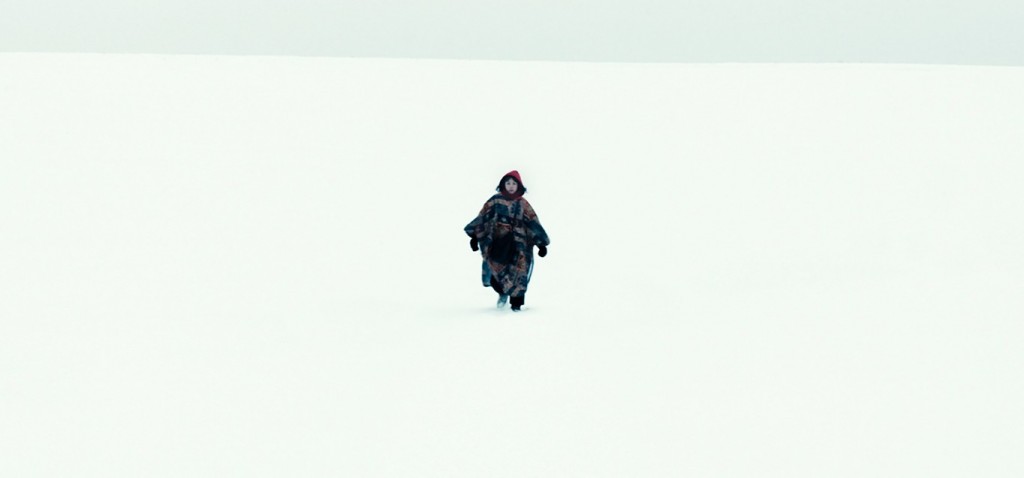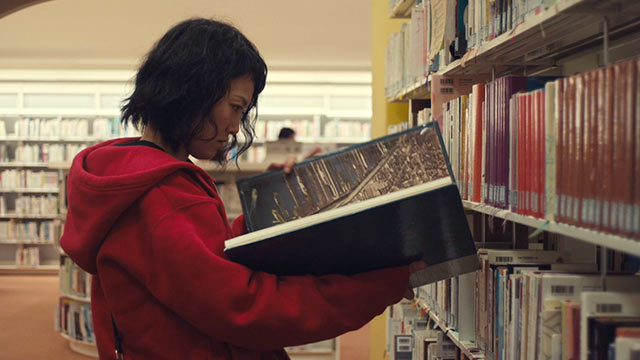This is a film of loss. Of the mania of dealing with loss. Of being lost in a world where we’re encouraged, our entire lives, to have purpose, a purpose, that what we do—office worker, movie star, politician, pet store owner, etc.—has meaning and we should find meaning in it. But what happens when we can’t? What happens when the one thing we want, what we want, isn’t appropriate for our stance in society? What’s expected of us? What happens then?

Being a working writer—which, for me, is someone who works to support the writing—I get this. I get that, doing one thing, no one really cares about the other. I get that sense of loss—I think any artist would. And that’s what this film is about, to me: Kumiko is a case of extremes, to be sure—she is delusional, her only real companion is her pet rabbit, bunzo—a one-sided friendship, to be sure—she dodges calls from one-time friends, her mother—but she is driven to hunt for treasure. This is her passion. This is her calling. And no one understands it.
This is a beautiful film. An infuriating film. You know, from the very first moments, when Kumiko is seen traipsing along a bucolic, rock-strewn beach—where she serendipitously finds, in a cave, an old VHS cassette of the Coen brothers classic Fargo—that this won’t end well. Coupled with the fact that this is based off of the urban legend of Takako Konishi, a Japanese woman who mis-reportedly died trying to find the money hidden by Steve Buscemi’s character, Carl Showalter, in the movie. But, back to the beach: Kumiko is traipsing, carefree, we see a tree in the foreground, the background, with her and the beach, slowly coming into focus…and she is alone. And anything could happen. We are already plunged into the depths of her mania: that she is on a mission, en media res, although we never find out what starts her, what gets her to here.

But it doesn’t matter. This is a film about isolation, too. About not feeling connected to others. It is shot beautifully—painstakingly, I wager, to resemble a Coen brothers film—acted impeccably, and the soundtrack is next-level good. We don’t ever get to know Kumiko other than the very precarious life she leads (goes to work; dissects the Fargo VHS tape; plays with Buzno), but we aren’t supposed to. I came away watching this, first, mired in sadness—sad for Kumiko, lost and alone, frozen, never finding the money (although, we do get a momentary glimpse of happiness for her, from her point-of-view, we imagine, as she succumbs to nature, to the Minnesota cold blanketing her body)—but then, I thought about it, thought about myself (how else should we view films, but against our own lives, histories?), and I had a very different reaction: This is an uplifting film, to some degree, with a strong moral at the end reminding us, that when we die, the only things we will carry with us into the next life, whatever that may be, are the passions that drove us, played out in our lives. You can easily weep for Kumiko, for her loss, but she’s so happy in the end, even in her delusion, and I think that’s…something.
My score: 4 out of 5 treasure maps

